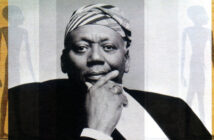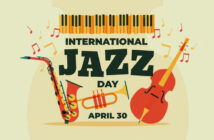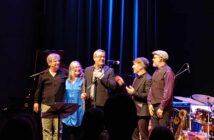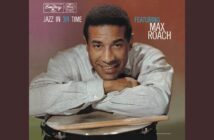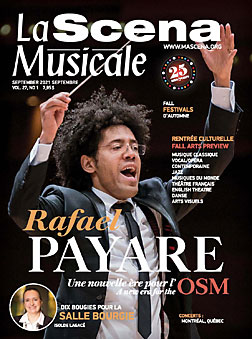
This page is also available in / Cette page est également disponible en:
![]() Francais (French)
Francais (French)
In the first instalment of this feature, the issue of authenticity in a listening experience was raised in relation to historical recordings that document musics of the past for the first time. But what about subsequent recordings of those works? Are they less authentic when other musicians than those on the originals tackle them? Or do they stand a better chance of being truer to form if those participating in the remakes had played them when they were brand new? The items under review here are responses to these queries.
 The first recording belongs to a well-known category, the Reunion album. Examples are plentiful in jazz, but the case of the Peter Lemer Quintet (Son of Local Colour, ESP Disk) is certainly unique in its own right, if not in the annals of music. Imagine five blokes meeting up again in a London club after 52 years! The miracle took place on one February evening in 2018, its uniqueness underscored by the fact that drummer John Hiseman passed away just three months later. Of the original cast, tenor saxophonist George Khan was unable to make it for health reasons, but his replacement Alan Skidmore (a first-generation Coltrane disciple) is about as good a sub you could get. Sharing frontline duties is the world heavyweight champion of the baritone sax, John Surman, in superb form. Rounding off the group are bassist Tony Reeves and the pianist leader. The title of this close to 70-minute side is a direct descendant of the original 1966 album (Local Colour), serendipitously issued on the very same label as this remake. There is no doubt that having a half-century of musical experience under their belts is a definite asset for the musicians. That in turn speaks volumes for this album, which could lead us to believe they had never lost sight of each other. They dig in from the first downbeat and dust off all but one of the pieces heard on the original side, replacing it with a rather lengthy jam on Impressions (the one small blemish of the whole album). If you like your jazz on the gutsy side, without its going too over the top, here is one great reunion brimming with youthful energy.
The first recording belongs to a well-known category, the Reunion album. Examples are plentiful in jazz, but the case of the Peter Lemer Quintet (Son of Local Colour, ESP Disk) is certainly unique in its own right, if not in the annals of music. Imagine five blokes meeting up again in a London club after 52 years! The miracle took place on one February evening in 2018, its uniqueness underscored by the fact that drummer John Hiseman passed away just three months later. Of the original cast, tenor saxophonist George Khan was unable to make it for health reasons, but his replacement Alan Skidmore (a first-generation Coltrane disciple) is about as good a sub you could get. Sharing frontline duties is the world heavyweight champion of the baritone sax, John Surman, in superb form. Rounding off the group are bassist Tony Reeves and the pianist leader. The title of this close to 70-minute side is a direct descendant of the original 1966 album (Local Colour), serendipitously issued on the very same label as this remake. There is no doubt that having a half-century of musical experience under their belts is a definite asset for the musicians. That in turn speaks volumes for this album, which could lead us to believe they had never lost sight of each other. They dig in from the first downbeat and dust off all but one of the pieces heard on the original side, replacing it with a rather lengthy jam on Impressions (the one small blemish of the whole album). If you like your jazz on the gutsy side, without its going too over the top, here is one great reunion brimming with youthful energy.
Listen to soundbyte of this recording here
 If the above release is a definite added value to that of the original, the same conclusion does not bear out in the second disc under review. (A Tribute to the Clarke-Boland Big Band/Challenge Records International.) As Lemer and consorts were scuffling around in the Swinging London of the mid-1960s, a veritable United Nations of jazz was gaining momentum on the continent, the Clarke-Boland Big Band. Co-led by the groundbreaking American drummer Kenny Clarke (then a Paris resident) and the Belgian pianist-composer Francy Boland, this fourteen-man outfit based in Cologne sported a star-studded cast of players from the Old World with a couple of expat American stars, the likes of Johnny Griffin and Art Farmer.Thanks to its chief financier and business manager Gigi Campi, the band churned out a slew of albums throughout its rather brief existence, which came to an end in 1972, due in good part to the sudden demise of its lead alto player Derek Humble the previous year. Its LPs lingered on for a time before going out of print, the music falling to the wayside for years, at least until recently. Fast forward to 2019, and the Bundesjazzorchester (the German youth jazz orchestra) secured scores from Mr. Campi’s heirs. From there, the group embarked on a continental tour to bring an assortment of originals scores back to life.
If the above release is a definite added value to that of the original, the same conclusion does not bear out in the second disc under review. (A Tribute to the Clarke-Boland Big Band/Challenge Records International.) As Lemer and consorts were scuffling around in the Swinging London of the mid-1960s, a veritable United Nations of jazz was gaining momentum on the continent, the Clarke-Boland Big Band. Co-led by the groundbreaking American drummer Kenny Clarke (then a Paris resident) and the Belgian pianist-composer Francy Boland, this fourteen-man outfit based in Cologne sported a star-studded cast of players from the Old World with a couple of expat American stars, the likes of Johnny Griffin and Art Farmer.Thanks to its chief financier and business manager Gigi Campi, the band churned out a slew of albums throughout its rather brief existence, which came to an end in 1972, due in good part to the sudden demise of its lead alto player Derek Humble the previous year. Its LPs lingered on for a time before going out of print, the music falling to the wayside for years, at least until recently. Fast forward to 2019, and the Bundesjazzorchester (the German youth jazz orchestra) secured scores from Mr. Campi’s heirs. From there, the group embarked on a continental tour to bring an assortment of originals scores back to life.
The results are packed into an album of just under 80 minutes, divided evenly between seven arrangements of standard tunes and six originals, the closer being its most famous number, the virtuosic Sax no End (a written-solo played in unison by the five-man section.) Standing in front of his youthful charges is Jiggs Whigham, a trombonist who used to sub in the original group. Beyond his directing duties, he provides rather chatty commentary between pieces (all in German at that). Doing away with his emceeing altogether would have surely reduced the whole affair by 10 minutes, yet even that would not have diminished the listening load that much. What the players do here is all fine and dandy, but the real McCoy is still the CBBB in its prime. It achieved its uniqueness like all great jazz bands by melding all of those individual musical personalities into a collective sound, so any attempt to recapture its magic will inevitably miss the mark, even played immaculately. What’s more, the music shows its age now, especially so when the charts are so closely adhered to, as if they were classical pieces frozen in time. Mind you, there are plenty of big band fanatics who have no qualms with such things, but do take note of this: the 16-page booklet were destined for a German-speaking market, which is too bad, because there is still some good info to be gleaned from the notes. But there are many archival shots to look at, if that is a consolation.
Listen to sounbyte of this recording here
Go here to read the main feature of the September-October jazz section on Montreal’s upcoming Off Jazz Festival.
This page is also available in / Cette page est également disponible en:
![]() Francais (French)
Francais (French)




